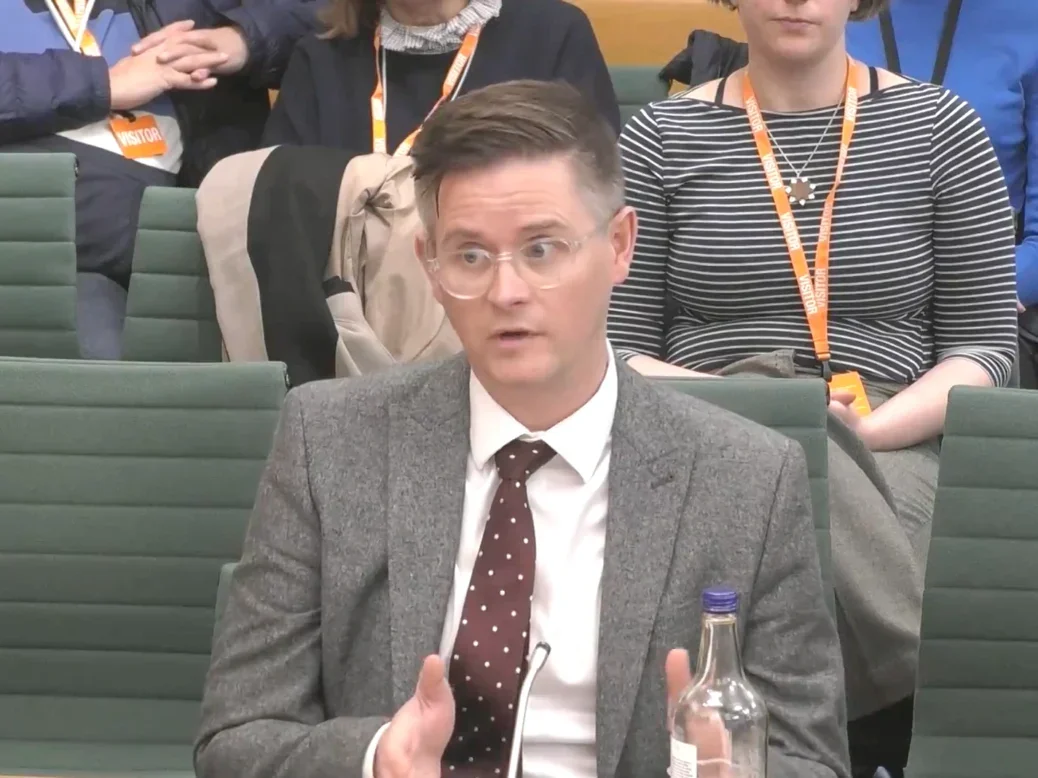
Preserving copyright protections for news publishers against theft by artificial intelligence companies is “a question of right and wrong”, the policy chief at the Financial Times has told MPs.
Matt Rogerson, director of global public policy and platform strategy at the FT and the former Guardian Media Group director of public policy, said watering down UK copyright law to help AI companies gather content to train large language models (LLMs) would be “a huge mistake”.
The UK government is currently consulting on proposals to introduce an “opt-out” copyright regime for AI companies which would automatically permit the tech businesses to scrape publisher and creatives’ content from the web unless those rightsholders explicitly forbade it.
Last week the House of Lords passed amendments to the Data (Use and Access) Bill that would explicitly subject AI companies to UK copyright law no matter where in the world they are and would reveal the names and owners of web crawlers. (The bill, which must now go back to the Commons, was otherwise not about copyright or AI.)
Baroness Kidron, who introduced the amendments, said the opt-out system represented “the most extraordinary sight of a Labour Government transferring wealth directly from 2.4 million individual creatives, SMEs and UK brands on the promise of vague riches in the future”.
Appearing before a joint session of the House of Commons Culture, Media and Sport Committee and Science, Innovation and Technology Committee on Tuesday about copyright and AI, Rogerson urged the MPs present to vote for Kidron’s amendments when they come before the Commons next week.
“There’s nothing wrong with UK copyright law,” he said. “It’s completely clear that what’s been going on is a breach of UK copyright law.”
Rogerson was appearing alongside Professional Publisher Association chief executive Sajeeda Merali and the composer Max Richter.
Merali told the legislators: “AI might represent the next digital evolution, but in the absence of copyright protection this is a huge threat to the commercial structures that are needed for fact-checked journalism…
“They are a competitor for time, a competitor for engagement, attention, [as a] source of information.
“In short you can’t have a competitor that has been granted free access to use your assets and your content to build a product that they are potentially creating billions from and not have any protection from copyright law.”
Copyright exemptions for AI companies ‘would be a huge mistake’, FT says
Instead of exemptions for AI companies, Rogerson and Merali both advocated that they be subjected to increased transparency requirements.
“I think what we’re not saying is we want to know all of the model weighting that you use, or any kind of secret sauce,” Rogerson said. “But knowing the data that goes in [to training an LLM] is fairly basic stuff.”
Rogerson argued that there was room for the creative industries and AI companies to work together. But he said: “We’re just at this stage now where these very large companies that usually make margins of 90% might have to take a smaller margin — and that’s clearly going to be upsetting for their investors. But that doesn’t mean they shouldn’t.
“It’s just a question of right and wrong, and where we pitch this debate. And unfortunately, I think the government has pitched it in thinking that you can’t reduce the margins of these big tech companies, otherwise they won’t build a data center.
“I think they’re just wrong — morally and from a standpoint of investment in what we do, which I think is societally important… It is possible to get this right.”
Responding to suggestions that US laws around “fair use” meant the country had a more permissive AI copyright regime that the UK should emulate, Rogerson emphasised that whether widespread scraping of content to train LLMs had been legal in the US was yet to be tested in the courts.
“Fair use has not been proved to cover what’s happened, either in training or what’s happening in terms of outputs.”
Several US news businesses are currently suing AI companies for alleged copyright infringement, with the likes of News Corp, The New York Times and The Center for Investigative Reporting each bringing separate suits.
Weakening the existing copyright regime in the manner proposed, Rogerson said, would not necessarily help UK AI companies get off the ground more quickly as is intended.
“All it does is it gives a free-for-all for large tech companies from anywhere in the world. And I think that would be a huge mistake.”
Rogerson dismissed any suggestion that AI companies objected to going through licensing primarily because it would add too much friction to the process of training their LLMs.
“I could send you a list tomorrow of all of the licensing offices that work through all of the UK press. It’s not hard…
“It’s not about the volume of people they have to talk to. It’s because they don’t want to pay.”
Merali agreed, saying: “Models exist at the moment — licensing companies, Apple News — LLMs need to have collective or individual agreements in order to make that work…
“All we’re asking is that the intent and benefits of copyright are preserved… and that the government doesn’t accidentally change a gold-standard UK copyright law that has existed since 1709.”
Email pged@pressgazette.co.uk to point out mistakes, provide story tips or send in a letter for publication on our "Letters Page" blog
